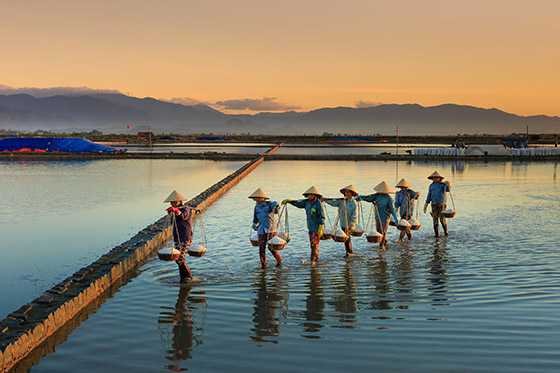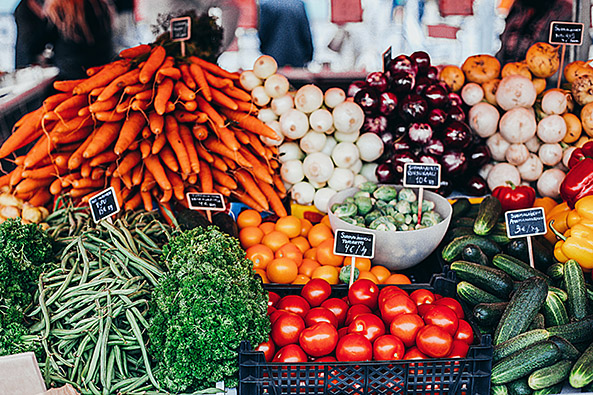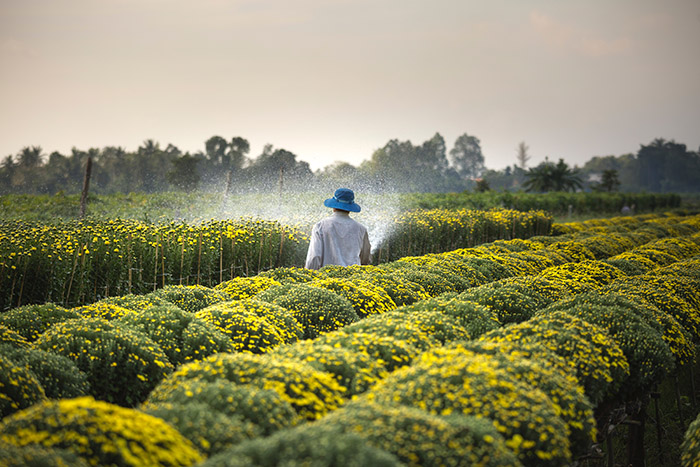India, an agricultural land, has more than 1/3rd of the population invested in agriculture either directly or indirectly. The crops sowed and harvested are utilized mainly for food and fibre, which amounts to an astonishing rate at which the country’s population is dependent on the agriculture system.
The country’s agri-food supply chain is largely supply-driven, corresponding to most consumers’ needs and expectations in the Indian continent and overseas. On average, there are over 7 to 8 intermediaries in the agri-food supply chain, but that poses an issue in the smooth functioning of the farming process and the net output.
Thus, elimination of these unwanted middlemen leaves behind three vital points contributing to the supply chain:
THE FARMER

Any supply chain always starts with the farmer and his produce. He is the primary supplier of all raw materials, whether fresh fruits or vegetables, grain or non-vegetarian items, which he wishes to supply to the various food processing companies. With increasing demands and preferences of consumer needs on what to consume, we see a shift from traditional farming methods to increasingly digitized and technology-driven methods of farming which not only cater to varied consumer needs but also make farmers lives simpler by ridding them of the middlemen who add chaos and deprivation to farmers and delay in the overall agricultural process. Apart from this, farmers are now also relieved from the adverse effects of climate change and receive improved price deals and better bargains since they can directly participate in the process without taking approvals from others. It provides sufficient room for farmers to take risks and anticipate crop prices in the market. The problem in India is that farmers mostly hold agriculture as a family purpose rather than a business; hence their structuring and organization of the daily agronomic processes need an increased service up in lines to achieve better production and at more effective price points. Data-driven and scientific techniques in favour of farmers are hence getting implemented to a large extent.
AGRO-FOOD ENTERPRISES

Food processing companies or agro-food enterprises are aware of the consumers’ right to traceability. Hence implementation of digital and technological tools and devices is a process that various agro-food enterprises are evolving into to ensure that all consumer needs are met with equal efficacy. At the same time, the farmers achieve their due amounts with improved facilities in the agro process. Enhanced predictability, cost-cutting measures, and better sustainability ensure that the end-to-end smooth and seamless functioning occurs. Transparency and ethics are a must to meet consumer trust and loyalty, thus being answerable to consumers on the ingredients used. Earlier, farmers used to witness massive losses in the initial, middle, or final stages, which would be a heinous loss to farmers livelihoods, but now, with increased technology and digital awareness, farmers and the supply chain both are mutually benefited with close to zero losses in food produced.
THE CONSUMER

Consumers are gaining awareness of health and nutrition-rich foods that can comprise a well-balanced diet in the digital age. More than adjusting to price points, the modern consumer is more interested in understanding the quality and safety of the food consumed. Hygiene and taste are the primary concerns. The reliability of ingredients used in the end product and the hygiene levels along the process is concerned. The supply chain is altered when high standards of authenticity and trust lie with the consumer. The efficacy of the food is what determines the economic and brand’s value; hence continuing to a healthy balanced supply chain was from start to finish all three elements – the farmer, the consumer, and the agro-food companies are satisfied with the product.
The present generation has witnessed the supply chain to be more front-end driven. Many food processing companies have started associating with farmers, proving that their presence is inevitable when completing any point in the supply chain. For input availability, farmers are mandatory; in the same way, modern trends have shown how existing trade today, alongside the increasing popularity of e-commerce, has catered to consumers’ needs and requirements. For this reason, many startups and other agro-based enterprises prefer to keep a direct link between the consumer and the farmer rather than have the middlemen in a place like it used to exist in the early days. To maintain organization and retain transparency, this simple 3-unit system provides an efficient balance in the AgriTech industry. Striving for a balanced supply chain is truly formidable.
Disclaimer: The article is authored by Sanjay Borkar, CEO and Co-Founder, FarmERP. The views and opinions expressed in this article are those of the author’s and do not represent those of PEAKLIFE.












